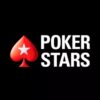Short Deck Poker, also known as Six Plus Hold’em, is becoming one of the most popular poker games in the world. This poker variant has gained significant traction in the poker community due to its fast-paced and thrilling gameplay. In this guide, we will provide an overview, delve into its rules and strategies, highlight the differences between this variant and traditional poker games, and provide practical tips for success in Short Deck Poker tournaments.
Short Deck Poker is a poker variant that shares similarities with Texas Hold’em, but with a few key differences. The game is played with a 36-card deck, with cards two to five removed, leaving players with a short deck of cards. This alteration in the deck’s composition leads to a significant shift in the hand rankings, making the game more action-packed and exciting.

Short Deck Poker is gaining popularity quickly due to its fast-paced gameplay and higher chances of making strong hands, making it an excellent choice for players seeking an adrenaline rush.
Key Takeaways
- Short Deck Poker is a poker variant gaining popularity worldwide due to its fast-paced and thrilling gameplay.
- The game is played with a 36-card deck, with cards two to five removed, altering the hand rankings and creating exciting gameplay.
- Short Deck Poker offers higher chances of making strong hands and is becoming an increasingly popular choice among players seeking an adrenaline rush.
Understanding Short Deck Poker Rules
Short Deck Poker, also known as Six Plus Hold’em, has gained significant popularity among players worldwide due to its fast-paced and exciting gameplay. The game is played with a 36-card deck, with all the cards below six removed, resulting in a shorter deck with a higher frequency of strong hands.
The rules are similar to traditional Texas Hold’em, with a few notable exceptions. The first difference is in the hand rankings. Due to the smaller deck size, a flush now beats a full house, and a three-of-a-kind beats a straight. The hand rankings for Short Deck Poker are as follows:
| Hand | Description |
|---|---|
| Straight flush | Five consecutive cards of the same suit |
| Three of a kind | Three cards of the same rank |
| Straight | Five consecutive cards of mixed suits |
| Flush | Any five cards of the same suit |
| Pair | Two cards of the same rank |
| High card | Five cards of mixed suits, with the highest card determining the hand |
Another significant rule change is the removal of all cards below six. This creates a significantly different gameplay experience, with stronger starting hands and more action on the felt.
One of the primary differences in gameplay between Texas Hold’em and Short Deck Poker is the pre-flop action. In Short Deck Poker, players are more likely to play hands due to the higher frequency of strong hands, resulting in more aggressive play and more opportunities for bluffing.
Comparing Hand Frequencies
Below is a comparison of the probabilities of various hands in both traditional Texas Hold’em and Short Deck Poker:
| Hand | Hold’em | Short Deck |
|---|---|---|
| Straight flush | 0.0311% | 0.20% |
| Four of a kind | 0.168% | 1.15% |
| Full house | 2.60% | 3.26% |
| Flush | 3.03% | 7.20% |
| Straight | 4.62% | 9.84% |
| Three of a kind | 4.83% | 22.50% |
| Two pair | 23.5% | 23.50% |
| One pair | 43.8% | 41.17% |
As you can see, the frequency of certain hands in Short Deck Poker differs significantly from traditional Hold’em, which can vastly affect gameplay and strategy.
Short Deck Poker Strategy
If you want to master Short Deck Poker, you need to have a solid strategy in place. Here are some tips to help you improve your gameplay:
- Hand Selection: Starting hands that are strong in traditional Texas Hold’em may not be as valuable. Focus on hands that have a high likelihood of hitting a strong hand on the flop. Hands like pairs, suited aces, and suited connectors are especially valuable.
- Position Play: As with most poker variants, the position is critical in short-deck poker. When playing in position, you have more information about your opponents’ hands and can make more informed decisions. When out of position, be more cautious and avoid calling too frequently.
- Bluffing: Bluffing can be a powerful tool. However, it’s essential to choose the right spots to bluff. Bluffing becomes less effective in short-deck poker, as players are likelier to have strong hands. Look for opportunities where your opponents may be susceptible, and avoid bluffing too frequently.
- Beware of Flush Draws: Flushes are more common due to the reduced deck size. Be cautious when playing hands with flush draws, as your opponents may have already made their flush.
- Adjust your Range: Short Deck Poker is a different game than traditional Texas Hold’em. Don’t be afraid to adjust your range to suit the gameplay changes. Stay nimble and adapt to the unique dynamics of each hand.
By incorporating these strategies into your gameplay, you’ll be able to gain an edge over your opponents and increase your chances of winning in Short Deck Poker.
Short Deck Poker Hand Rankings
Short Deck Poker uses the same hand rankings as traditional Texas Hold’em with the notable exception of one hand. In Short Deck Poker, a Flush beats a Full House. Because flushes are more common, they are given a higher ranking.
“In Short Deck Poker, starting hands that are strong in traditional Texas Hold’em may not be as valuable.”
Understanding the hand rankings is critical in developing a winning strategy for Short Deck Poker.
Notable Differences Between Short Deck Poker and Traditional Poker
Short Deck Poker is a relatively new poker variant that has gained immense popularity in recent years. However, it differs significantly from traditional poker games in many ways. Here are some of the most notable differences between short-deck poker and traditional poker:
Deck Composition
The most significant difference between Short Deck Poker and traditional poker games is the deck composition. In Short Deck Poker, the deck only contains 36 cards instead of the standard 52 cards used in other variants. The deck excludes all cards numbered 2, 3, 4, and 5, leaving only cards numbered 6 through Ace.
This change in deck composition has a significant impact on the game’s dynamics, causing higher probabilities of hitting strong hands, like straights and flushes. In turn, this leads to more aggressive gameplay and bigger pots.
Hand Rankings
Another significant difference in Short Deck Poker is the hand rankings. Due to the absence of the lower cards, the hand rankings differ from the standard hand ranking used in traditional poker games.
In Short Deck Poker, a flush beats a full house, and a three-of-a-kind is more valuable than a straight. The ace can also be used as a low card in making a straight, such as A-6-7-8-9.
Gameplay
Short Deck Poker gameplay also differs from traditional poker. In this variant, players have a higher probability of hitting strong hands, so the game is much more aggressive, and players are more willing to put chips in the middle of the table.
Moreover, in Short Deck Poker, players can also straddle, which means placing an extra blind bet before the start of each hand. This extra bet increases the pot size and gives the straddling player the last action pre-flop.
Conclusion
Short Deck Poker is a unique poker variant that has taken the poker world by storm. If you are familiar with traditional poker games, you will find that offers a refreshing change of pace and a new set of challenges. Understanding the differences between the two variants is crucial to adapting your gameplay and exploiting the unique dynamics.

Conclusion
Short Deck Poker is a thrilling and fast-paced variant of poker that has quickly gained popularity among players worldwide. By familiarizing yourself with the rules, strategies, and nuances of this game, you can enhance your poker skills and enjoy the excitement it brings to the table.
Whether you are a beginner or an experienced player, it is important to understand that Short Deck Poker requires a different approach than traditional poker games. The significant differences in hand rankings and gameplay make it essential to adapt your strategy to exploit the dynamics of the game.
Tips for Success in Short Deck Poker
Here are some practical tips to help you succeed in Short Deck Poker:
- Understand the hand rankings and how they differ from traditional poker games.
- Familiarize yourself with the specific gameplay variations, such as the button blind and the removal of certain cards from the deck.
- Focus on position play and use your position to your advantage.
- Adapt your starting hand selection to the game’s unique dynamics.
- Don’t be afraid to bluff and use deception to gain an edge over your opponents.
- Pay attention to your opponents and adjust your gameplay accordingly.
- Practice, practice, practice!
With these tips, you can confidently take on the challenge of Short Deck Poker and improve your skills in this popular poker variant.
FAQ
What is a Short Deck Poker?
Short Deck Poker, also known as Six Plus Hold’em, is a popular variant of traditional Texas Hold’em. In Short Deck Poker, the deck is reduced to 36 cards, with all cards below 6 removed. This leads to unique gameplay dynamics and hand rankings.
How does Short Deck Poker differ from traditional poker?
Short Deck Poker differs from traditional poker in several ways. Firstly, the deck is reduced, resulting in different hand rankings. Additionally, some gameplay variations are introduced, such as flushes beating full houses and the absence of certain cards.
What are the basic rules of Short Deck Poker?
The basic rules are similar to traditional Texas Hold’em. Players are dealt two private cards, and all players can use five community cards to form the best hand. The goal is to make the best hand and win the pot.
What strategies can I use in Short Deck Poker?
Aggressive play, hand selection, and position play are crucial. Due to the altered hand rankings, players must adjust their strategy and be mindful of the increased frequency of strong hands.
Are there any professional players who specialize in Short Deck Poker?
Yes, Short Deck Poker has gained popularity among professional players, with many showcasing their skills in tournaments and high-stakes cash games. Notable players who have achieved success include Phil Ivey, Tom Dwan, and Jason Koon.
What are the key differences between Short Deck Poker and traditional poker tournaments?
Short Deck Poker tournaments follow a similar format to traditional poker tournaments but with adjustments for the variant’s unique gameplay. Players need to adapt their strategies to the altered hand rankings and the faster pace of the game.
Are there any specific tips for success in Short Deck Poker?
Yes, some tips for success in Short Deck Poker include understanding the altered hand rankings, being aware of the increased strength of drawing hands, and adjusting your strategies based on the game’s dynamics. Practice and experience are also crucial for improving your skills.
What is the appeal of Short Deck Poker?
Short Deck Poker offers a thrilling and fast-paced gameplay experience, with altered hand rankings adding a new layer of excitement. The variant’s popularity has grown due to its strategic depth and the challenge it presents to both recreational and professional players.


















